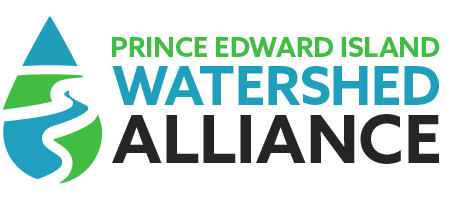07 Feb Living lab workshop boosts pasture management techniques
by Vivian Ulinwa published on Monday, February 5th, 2024, in The Guardian (online)
A grazing workshop for P.E.I. farmers held in O’leary on Jan. 25 aimed to promote pasture management and increase yield for local farmers.
The living lab workshop was a partnership between Agriculture and Agri-food Canada and the East-prince Agri-environment Association.
During the workshop, the main focus was on improving pasture management techniques for increased productivity.
The workshop was led by research biologist John Duynisveld who emphasized the importance of farmers understanding the value of changing and enhancing pasture management to help their livestock graze for more days in a year.
The workshop covered designing pastures that allow plants more rest and growth, resulting in stronger root systems and a more productive ecosystem.
“Some animals might be put on (a piece of land) in late spring. And they are grazing the same, the same piece of land, the entire summer,” said Duynisveld.
“So, with this improved grazing management, we look at trying to divide that into smaller pieces. So that they’re grazing a smaller piece, which allows the other pieces more time to grow, and then to be able to produce more feed for their animals.”
During the workshop, participants discussed various methods of introducing new seeds into an existing piece of land without plowing it. One such method is frost seedling, which aims to avoid releasing carbon into the ecosystem associated with traditional plowing.
Duynisveld highlighted research indicating that advanced grazing management can increase the number of pasture days on a piece of land by about 40 per cent after five years compared to less advanced systems.
Farmers, particularly those who have invested and are interested in pasture improvement, engaged in an open discussion about individual challenges and questions related to their specific needs. Topics including increasing legume levels in pastures for enhanced productivity were discussed.
“If you have more legumes in the pasture, the animals will grow more quickly, or they’ll put on more fat more quickly than if there was a low level of these plants in the pasture,” he said.
Duynisveld said farmers who adopt pasture management can expect to see more pasture for their livestock on the same piece of land than they would typically see.
Emily Belliveau, a specialist in knowledge and technology transfer with the East Prince Agri-environment Association, said that workshops like this offer an opportunity for valuable discussions. They allow local farmers and producers to share ideas, identify areas for improvement, and exchange insights on what works best for their farms.
Peer-to-peer exchange of ideas has proven to be the most direct and effective way to transfer knowledge between farmers and producers, she said.
By attending these workshops, farmers can learn from researchers and other farmers alike.
“Ultimately, our goal is to purposely create an environment for information exchange. In this workshop, we were better able to understand where P.E.I. farmers are currently with rotational grazing and livestock feeding strategies as well as barriers to adopting these practices,” she said.
“We are very pleased with the initiative and leadership position that AAFC has taken in advancing research to address the on-farm needs of our producers. This is precisely what we envisioned would happen through the Living Labs program. We look forward to further collaboration with AAFC in support of our farming community.”



